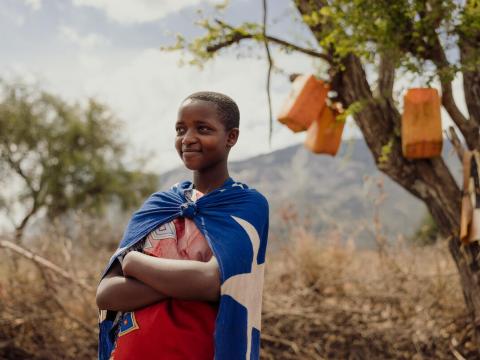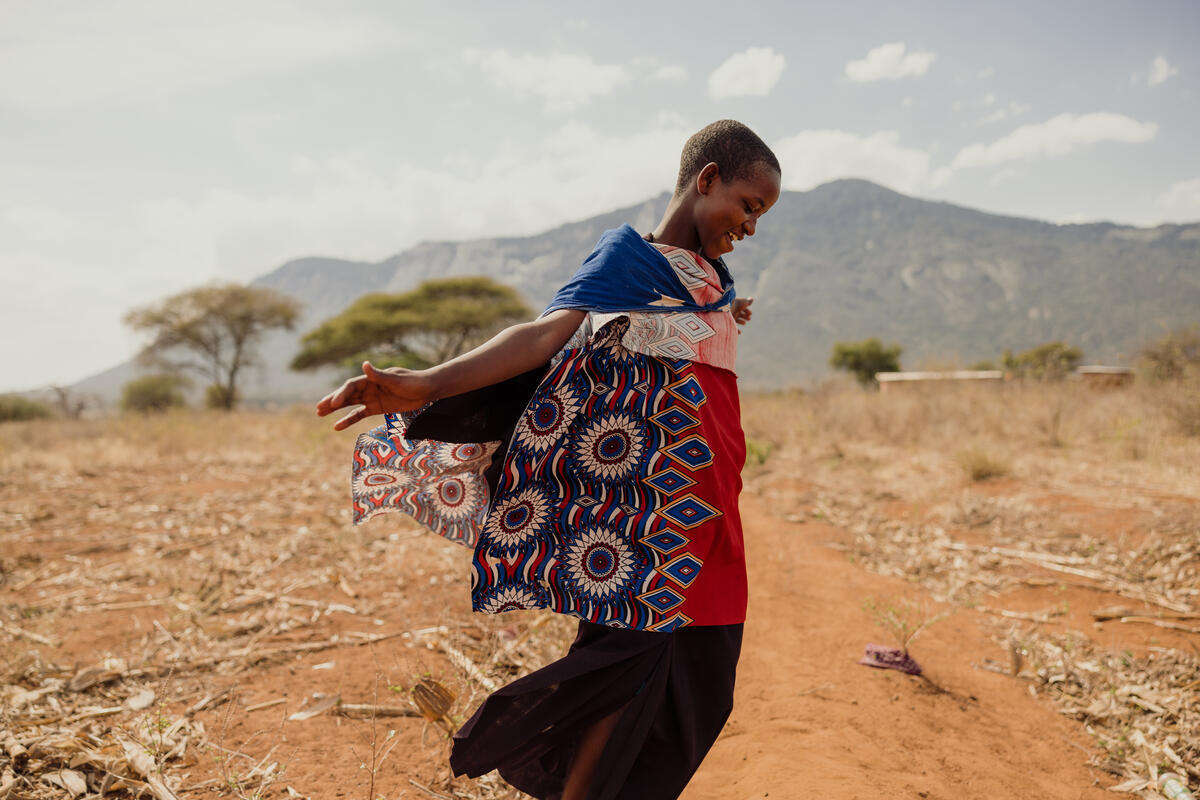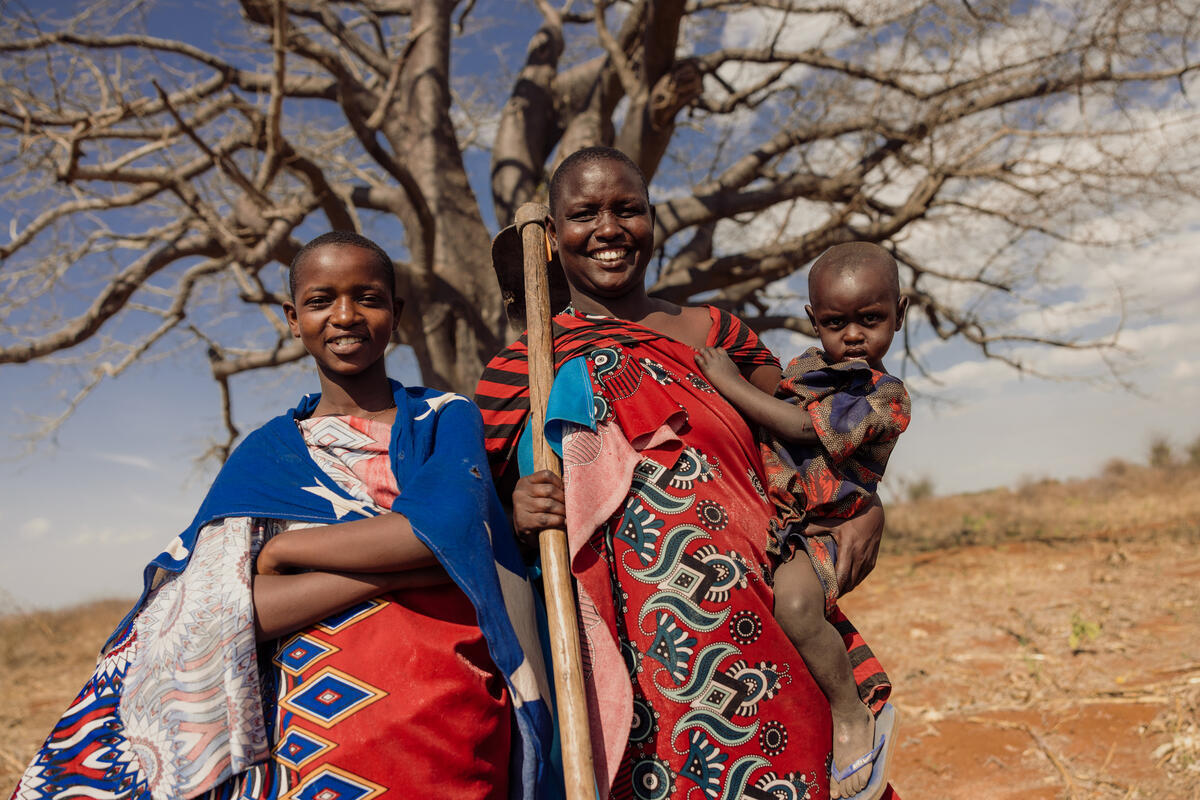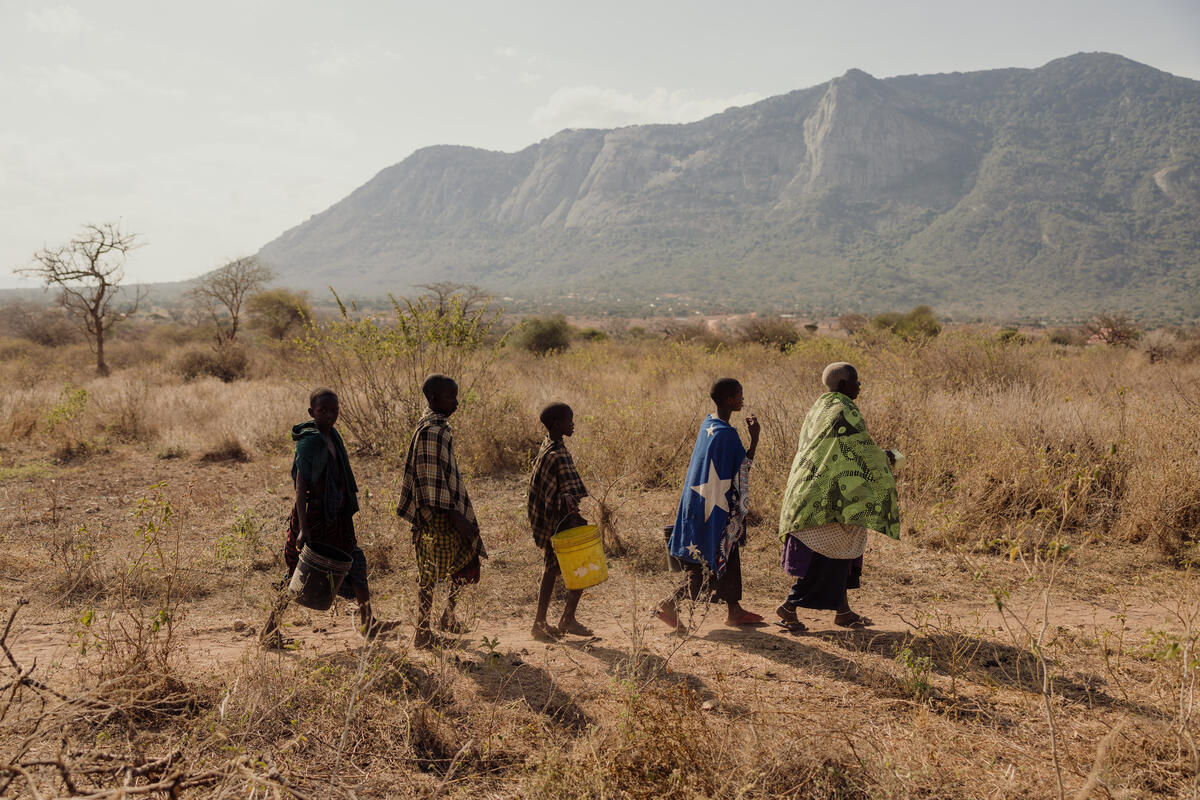One girl’s fight for school is giving child marriage the boot

In the remote Maasai village of Naberera, Tanzania, 12-year-old Sarah is challenging deeply rooted traditions – and winning. Once destined for early marriage, Sarah is now pursuing her dream of becoming a teacher, and in doing so, she’s showing what’s possible when girls are given the chance to learn.
Sarah lives with five siblings, her parents, elderly grandparents, and extended family. Her mother Anna is the sole breadwinner, selling snacks to scrape together enough to feed the household. In her community, child marriage is normalised as a way for girls and their families to secure their futures. And so, it was no surprise that when Sarah and her brothers were old enough to go to school, her brothers went while she was told to stay home.

Instead of going to school Sarah was regularly sent to beg or borrow food from neighbours. “I felt hopeless,” says Sarah. “I was crying most of the time and I said, ‘I need to be educated as well, like my brothers. Do not deny me. Do not deny my rights.’” By the time she was 10 years old, Sarah decided enough was enough.
Determined to be heard, Sarah approached Hashim, a trusted leader and family friend, and told him she wanted to go to school – despite her parents’ objections and plans to marry her off in exchange for a dowry.
“I met the leaders including the ward executive,” Hashim explains. “We eventually educated [her parents] and they agreed to take Sarah to school.” Moved by Sarah’s courage, Hashim invited her to live with his family so she could enrol. “They enrolled me to school. I started primary school standard one. I moved to Mr Hashim's house and I started living there,” Sarah says. “I was going to read and to write. I felt very good.”

Around the same time, World Vision’s child sponsorship programme began in their community, and Hashim received training to become a volunteer child monitor. The training deepened his belief in the power of education to transform lives. “Children are equal and they equally need education without gender prejudice,” he said. “When we segregate girls from acquiring education, we are creating a group of women who lack understanding.” Today, Hashim is one of many local champions helping ensure girls like Sarah are no longer left behind.
Within a year, Sarah’s academic progress was so impressive she skipped two grades. “Last year I was top of the class. I was promoted [to standard four] because I was competent in reading.” Her mother was amazed by how quickly she had excelled. But the daily pressure of feeding a large household still remained, and so Anna asked if Sarah might return home to help after school. Sarah agreed and together, mother and daughter found a compromise: Sarah would support the family at home, and in return, she would be able to stay in school, with talks of marriage being put off until she is ready.

This is far from the norm in Nabeera, but it represents the change that is possible. Today child marriage is still a longstanding practice, often exchanged for cattle or money. “They are denying girls to go to school in order to marry them off,” Sarah says. Anna understands this pain. “My father gave me to a man of his own choice… Although reluctantly, I agreed because I honoured my father's wish,” she says. Now, she wants more for her children. “I pray to God for my children to get an education so that they can have a better life – not like mine.”
For children in Nabeera, opportunity is on the horizon. In 2023 sponsors started supporting the community and Sarah’s younger siblings were sponsored. Since starting work there, local leaders like Hashim have been equipped with training that challenges harmful gender norms and highlights the power of education. Hashim, now a Child Monitor says, “It is a must that children must be educated, either a girl or a boy. I have been having this kind of perspective because I have received a lot of trainings through World Vision on the importance of both, girls and boys to be educated.”
Beyond education, the World Vision is helping families build resilience. Nine savings groups have been established to support livelihoods, and future plans include nutrition support, school feeding programmes and access to healthcare.
Sarah’s story is just the beginning.
Right now, 1000 girls like Sarah are denied an education and forced into marriage as children, just because they are girls. Will you stand with them? With your sponsorship gift, you can help a girl and her community build a future where every child lives free from fear. Sponsor a girl today.